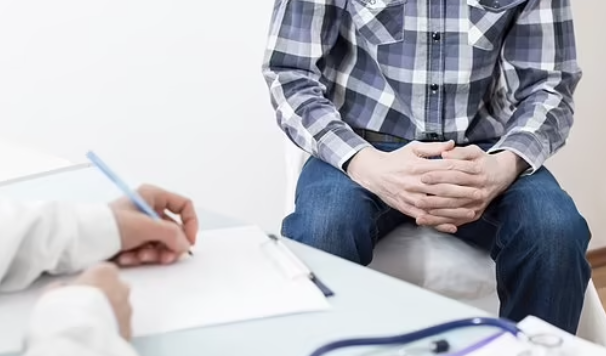It started subtly — a faint odor I couldn’t quite place. At first, I thought maybe it was the laundry detergent or a bad day at the gym. But over the course of a few weeks, the smell grew stronger, more pungent. It wasn’t just body odor. It was something else — something almost rotten.
My husband had always been meticulous about hygiene, so the sudden change raised a red flag. I brought it up gently, trying not to embarrass him. He shrugged it off, said he didn’t notice anything, and that maybe I was being overly sensitive. But when even his coworkers began joking about it, I knew it was time to take action.
I made an appointment with a urologist. I figured it was better to be safe than sorry, and he agreed, though he still didn’t seem too concerned. I went with him for support, and we checked into the clinic that afternoon.
He was called in first. I sat in the waiting room, flipping through a magazine, still thinking this was all probably a weird infection or hormonal imbalance. Maybe something he ate?
But just five minutes later, the door to the exam room creaked open. The doctor stepped out, visibly flustered. His face was red, his eyes watery — and not in a sympathetic way. He was holding back laughter.
“Ma’am,” he said, barely containing himself, “you… you might want to come in and hear this directly.”
My heart skipped. What could possibly be so funny?
I walked into the room, and there was my husband, sitting on the edge of the exam table, staring at the floor. His face was pale. He wouldn’t meet my eyes.
“Honey…” he said, voice cracking, “I don’t know how to say this. But… I, uh… I cheated on you.”
I blinked. “What?”
He continued, now speaking in a rush. “It happened one time, I swear. A mistake. I was drunk, it meant nothing. But I didn’t use protection. And… now I’ve got some kind of infection. The doctor says it’s likely venereal. That’s what the smell is from.”
I stood frozen. Of all the things I expected, this wasn’t one of them.
The doctor looked uncomfortable, giving us space. I couldn’t process it at first. My concern had brought us here, and now I was staring at the man I trusted most, realizing I didn’t recognize him at all.
The smell? It wasn’t from stress or poor hygiene. It was a symptom. A warning. A consequence.
The worst part wasn’t even the betrayal — it was the silence. The fact that he would’ve kept this secret, let it fester, and potentially put me at risk. I was the one who noticed something was wrong. I was the one who pushed for answers. And I was the one who walked into that room only to be blindsided.
I left the clinic alone that day, unsure of what would come next. But I was certain of one thing: when your gut tells you something isn’t right, trust it.
